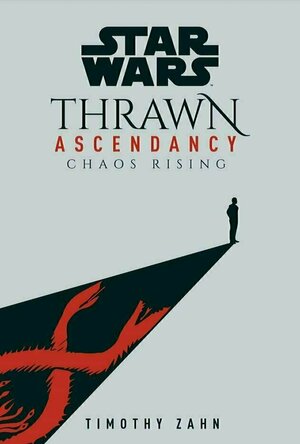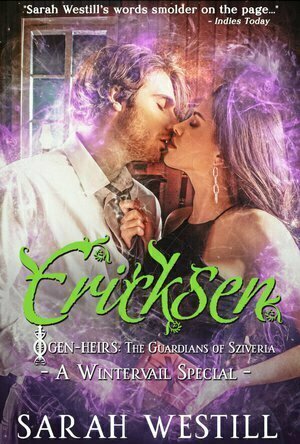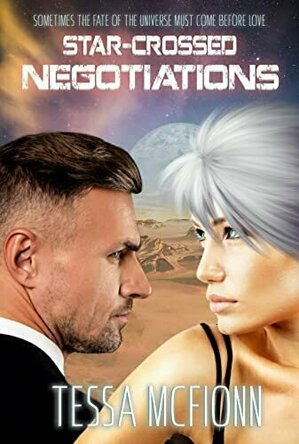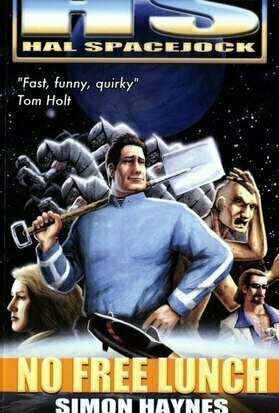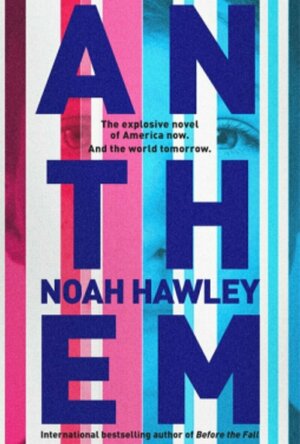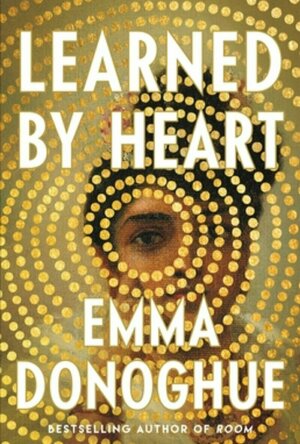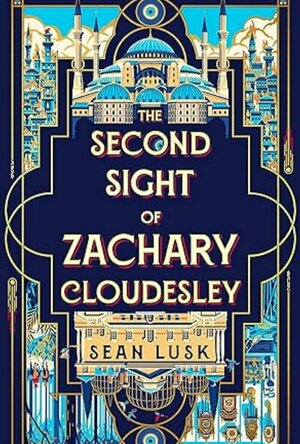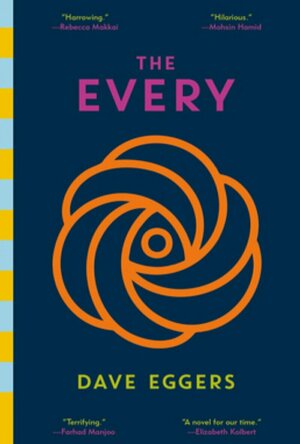Search
Search results
ClareR (5879 KP) rated How Beautiful We Were in Books
Jan 25, 2022
How Beautiful We Were is the story of an African village (Kosawa - it’s fictitious) and its environmental destruction and pollution by an American oil company. Their water and land is contaminated. Children die from drinking poisoned water, they can no longer grow crops as their farmland is infertile. Thinking that they can get some help from the government, some men go to appeal their leader in the capital city, but they disappear after being arrested. The country’s dictator is only out for the money and profit, and these uneducated villagers are expendable.
It’s not until American citizens see the slaughter of the villagers that action is taken. However, even after promises of reparation, the oil company doesn’t pay up, and more deaths follow.
Thule is a fascinating character. She leaves to study in the US for the sake of her village - even though she doesn’t want to leave. But she wants to learn as much as possible so that she can help her friends and family. She studies, she gets involved in similar campaigns in America, and then comes home to use that knowledge. She’s so selfless: she has the opportunity to make a life in New York and never return to a place where her life will be in danger, but she goes home.
I really liked the way that this novel was set out, and it worked so well on audiobook. The Children, The Young Men and Thule chapters were read by different people, and it really helped to put me in their situation. Listening to the reactions of the children and young men in ‘their’ voices, and Thule’s experiences in ‘her’ voice, was what made this all the more special and affecting for me.
Recommended.
It’s not until American citizens see the slaughter of the villagers that action is taken. However, even after promises of reparation, the oil company doesn’t pay up, and more deaths follow.
Thule is a fascinating character. She leaves to study in the US for the sake of her village - even though she doesn’t want to leave. But she wants to learn as much as possible so that she can help her friends and family. She studies, she gets involved in similar campaigns in America, and then comes home to use that knowledge. She’s so selfless: she has the opportunity to make a life in New York and never return to a place where her life will be in danger, but she goes home.
I really liked the way that this novel was set out, and it worked so well on audiobook. The Children, The Young Men and Thule chapters were read by different people, and it really helped to put me in their situation. Listening to the reactions of the children and young men in ‘their’ voices, and Thule’s experiences in ‘her’ voice, was what made this all the more special and affecting for me.
Recommended.
Heather Cranmer (2721 KP) created a post
Feb 24, 2023
David McK (3562 KP) rated Thrawn Ascendancy Book I: Chaos Rising in Books
Jun 21, 2022
Grand Admiral Thrawn
Mitth'raw'nuruodo.
The blue-skinned, red-eyed Imperial antagonist of Timothy Zahn's 'Heir to the Empire' series of Star Wars novels from the early 90's, and one of - if not [i]the[/i] breakout characters from that book.
Yet to make his appearance in live action (as an aside, I imagine maybe someone like Benedict Cumberbatch in the role), although he is one of the few characters to survive the 'great purge' when Disney bought out Lucasfilm and re-branded the old Expanded Universe as 'Legends', appearing in the later seasons of the animation 'Star Wars: Rebels'.
This is the first in a new trio of novels, with the opening text reading something along the lines of: 'A long time ago beside a galaxy far far away ...' which, in itself, helps set the scene. Beside a galaxy. So we're not in the realms of the Empire/The Rebellion here, or even in the realm of the Clone Wars, although we are - as the novel later makes clear when Thrawn encounters a key character from that period of time - in that particular era.
So, a prequel then? Maybe, but - I have to say- to me, this particular version of Thrawn just somehow *feels* different than that from the old EU. There's a certain Je Ne Sais Qua about that - I can't quite put my finger on it, but it's like meeting the identical twin brother of your best friend: they may look alike, sound alike and even dress alike but there's a certain indefinable *something* that's not quite right ...
Is it this version of Thrawn's political naivety? His seemingly not-quite-so-ruthless tactical genius? I don't know, but I will probably read more to see if/how the character evolves into that I am more familiar with.
Mitth'raw'nuruodo.
The blue-skinned, red-eyed Imperial antagonist of Timothy Zahn's 'Heir to the Empire' series of Star Wars novels from the early 90's, and one of - if not [i]the[/i] breakout characters from that book.
Yet to make his appearance in live action (as an aside, I imagine maybe someone like Benedict Cumberbatch in the role), although he is one of the few characters to survive the 'great purge' when Disney bought out Lucasfilm and re-branded the old Expanded Universe as 'Legends', appearing in the later seasons of the animation 'Star Wars: Rebels'.
This is the first in a new trio of novels, with the opening text reading something along the lines of: 'A long time ago beside a galaxy far far away ...' which, in itself, helps set the scene. Beside a galaxy. So we're not in the realms of the Empire/The Rebellion here, or even in the realm of the Clone Wars, although we are - as the novel later makes clear when Thrawn encounters a key character from that period of time - in that particular era.
So, a prequel then? Maybe, but - I have to say- to me, this particular version of Thrawn just somehow *feels* different than that from the old EU. There's a certain Je Ne Sais Qua about that - I can't quite put my finger on it, but it's like meeting the identical twin brother of your best friend: they may look alike, sound alike and even dress alike but there's a certain indefinable *something* that's not quite right ...
Is it this version of Thrawn's political naivety? His seemingly not-quite-so-ruthless tactical genius? I don't know, but I will probably read more to see if/how the character evolves into that I am more familiar with.
Merissa (12911 KP) rated Ericksen (Gen-Heirs: The Guardians of Sziveria, #5) in Books
Nov 7, 2022
ERICKSEN continues the brilliance that is the Gen-Heirs: The Guardians of Sziveria series. For the first time, our male protagonist is NOT a Gen-Heir, or Shield Guardian, or any of the other ranks. Instead, Vayden is Gen-Common - in other words "normal." Melody, on the other hand, does have a talent - logic-based as far as she has been told. She has been raised to believe Gen-Common people are basically a waste of space, so it was wonderful to see the changes that occur when she realises how wrong she was. Of course, to believe something that fundamental means her upbringing wouldn't be classed as healthy by any stretch of the imagination, and the contrast between her family and Vayden's was so stark, beautiful in the differences.
The overall story arc continues but you don't need to have read any of the previous books to understand this one. I would recommend you read them simply for the amazing stories they are!
The pacing is wonderful, giving you moments of action coupled with moments of silence, vulnerability, and tenderness. There are moments of steam, but that isn't the main focus of the novel.
I loved seeing Melody grow as a person and as a talent. Vayden stole my heart from the start and just compounded it with every sweet and loving moment. This was a fantastic addition to the series and I can't wait for it to continue. Highly recommended by me.
** same worded review will appear elsewhere **
* A copy of this book was provided to me with no requirements for a review. I voluntarily read this book, and the comments here are my honest opinion. *
Merissa
Archaeolibrarian - I Dig Good Books!
The overall story arc continues but you don't need to have read any of the previous books to understand this one. I would recommend you read them simply for the amazing stories they are!
The pacing is wonderful, giving you moments of action coupled with moments of silence, vulnerability, and tenderness. There are moments of steam, but that isn't the main focus of the novel.
I loved seeing Melody grow as a person and as a talent. Vayden stole my heart from the start and just compounded it with every sweet and loving moment. This was a fantastic addition to the series and I can't wait for it to continue. Highly recommended by me.
** same worded review will appear elsewhere **
* A copy of this book was provided to me with no requirements for a review. I voluntarily read this book, and the comments here are my honest opinion. *
Merissa
Archaeolibrarian - I Dig Good Books!
Merissa (12911 KP) rated Star-Crossed Negotiations in Books
Nov 14, 2022
I loved EVERY word!
STAR-CROSSED NEGOTIATIONS is a hard-hitting story of love and betrayal, of wars fought and peace wanted. It is everything I have come to expect from a Tessa McFionn book and I loved every word!
Vanysha and Kieran were young lovers, torn apart by a disapproving parent and the events that followed were kept secret. Move forward six years and they meet again by chance when the ship Kieran is using to take him to another planet is the one Vanysha bought. Everything that could go wrong, does go wrong, but they still make it to Hexaka. What they find there is nothing that they expected but turns into something even more.
I really felt for Van and Kieran in this story. Neither of them deserved what happened to them, especially Van. They are well-rounded characters with understandable pain and anguish. There wasn't a single thing about them that could have been better.
The supporting cast is just as good - both on the ship and planet-side! I adore H'reeh and I really hope his children get a story of their own! In fact, I hope we return to Hexaka. It is a much nicer world than Central! Plus, I need to see how Van and Kieran getting on.
Steadily paced, this novel gives the characters time to adjust to circumstances, and that made the steamy time even hotter. Definitely worth the wait.
This is definitely a Royal Jan-star this author's crown! Please tell me we're returning, please!!! HIGHLY recommended by me.
** same worded review will appear elsewhere **
* A copy of this book was provided to me with no requirements for a review. I voluntarily read this book, and the comments here are my honest opinion. *
Merissa
Archaeolibrarian - I Dig Good Books
Vanysha and Kieran were young lovers, torn apart by a disapproving parent and the events that followed were kept secret. Move forward six years and they meet again by chance when the ship Kieran is using to take him to another planet is the one Vanysha bought. Everything that could go wrong, does go wrong, but they still make it to Hexaka. What they find there is nothing that they expected but turns into something even more.
I really felt for Van and Kieran in this story. Neither of them deserved what happened to them, especially Van. They are well-rounded characters with understandable pain and anguish. There wasn't a single thing about them that could have been better.
The supporting cast is just as good - both on the ship and planet-side! I adore H'reeh and I really hope his children get a story of their own! In fact, I hope we return to Hexaka. It is a much nicer world than Central! Plus, I need to see how Van and Kieran getting on.
Steadily paced, this novel gives the characters time to adjust to circumstances, and that made the steamy time even hotter. Definitely worth the wait.
This is definitely a Royal Jan-star this author's crown! Please tell me we're returning, please!!! HIGHLY recommended by me.
** same worded review will appear elsewhere **
* A copy of this book was provided to me with no requirements for a review. I voluntarily read this book, and the comments here are my honest opinion. *
Merissa
Archaeolibrarian - I Dig Good Books
David McK (3562 KP) rated No Free Lunch (Hal Spacejock #4) in Books
Jan 27, 2023
No Free Lunch.
The fourth in Simon Haynes Hal Spacejock series (following A Robot Named Clunk, Second Course and Just Desserts), and the first where Harriet Walsh (from the author's other 'Peace Force' series) cross-overs with Hal.
As I knew that 'going in', I read the first three Hal Spacejock novels before the four Harriet Walsh novels (Peace Force, Alpha Minor, Sierra Bravo and Foxtrot Hotel) before reading this.
Which, unfortunately, proved to be a mistake as I spent a good portion of this novel - well over the first half! - wondering where Harriet's 'sister' Alice or even some of the other characters (with the notable exception of Bernie) had gone, or even why they weren't mentioned at all!
I only found out later that, whilst set beforehand, the Peace Force novels were actually prequels, written later than this one but set before (think like the Star Wars prequels, compared to the original trilogy).
Once I got past that, uhhh, 'disassociation' - once the action primarily moved off the planet of Dismolle to the neighbouring planet Forzen, things did pick up a tad, with Hal and Harriet (and a hint of romance between them) both getting caught up in a murder mystery whilst investigating the disappearance of a wealthy citizen of that planet.
I don't want to give anything away, but I could definitely see elements of the later seasons of Stargate SG-1 here. If you know, you know!
So, yeah, all-in-all, a pleasant enough read but not one that, for me, matched the earlier novels in the series or even the Peace Force novels.
I'll still probably read more of these.
The fourth in Simon Haynes Hal Spacejock series (following A Robot Named Clunk, Second Course and Just Desserts), and the first where Harriet Walsh (from the author's other 'Peace Force' series) cross-overs with Hal.
As I knew that 'going in', I read the first three Hal Spacejock novels before the four Harriet Walsh novels (Peace Force, Alpha Minor, Sierra Bravo and Foxtrot Hotel) before reading this.
Which, unfortunately, proved to be a mistake as I spent a good portion of this novel - well over the first half! - wondering where Harriet's 'sister' Alice or even some of the other characters (with the notable exception of Bernie) had gone, or even why they weren't mentioned at all!
I only found out later that, whilst set beforehand, the Peace Force novels were actually prequels, written later than this one but set before (think like the Star Wars prequels, compared to the original trilogy).
Once I got past that, uhhh, 'disassociation' - once the action primarily moved off the planet of Dismolle to the neighbouring planet Forzen, things did pick up a tad, with Hal and Harriet (and a hint of romance between them) both getting caught up in a murder mystery whilst investigating the disappearance of a wealthy citizen of that planet.
I don't want to give anything away, but I could definitely see elements of the later seasons of Stargate SG-1 here. If you know, you know!
So, yeah, all-in-all, a pleasant enough read but not one that, for me, matched the earlier novels in the series or even the Peace Force novels.
I'll still probably read more of these.
Where to begin with this book? Well, first off, I thoroughly enjoyed it, and was lost in the story whilst I read - it’s very ‘all-consuming’. The main reason for that is that it’s completely out there! It’s unpredictable. I tried to think of another couple of words to go with that, but I can’t get any better than ‘unpredictable’ to be honest.
The pandemic of teenage suicides is disturbing, and reflects their despair at the state of the world left for them by previous generations. Parents with money think that they can prevent their childs’ suicide and cure their anxiety throwing money and anti-depressants at the ‘problem’, and sending them to an Anxiety Abatement Centre - and that’s how Simon meets the Prophet and Louise. And that’s where the quest begins.
It turns out that adults are responsible for more than Climate Change. You can add child abuse and big Pharma into the mix as well. And then there’s the political state of the country, where no party is any better than the other, and what’s more, they’re interchangeable. There was a lot of head nodding going on as I read.
And Noah Hawley breaks the 4th wall as he talks directly to the reader, talking about his thought process in writing the novel.
This book is a huge exaggeration of the state of the world, at the same time as it’s not. I hope it doesn’t come to the things that happen in Anthem, but we’ve seen snapshots of it on the news already.
It’s just the right level of crazy, believable, unbelievable, mind-blowing fiction that keeps me well-entertained. I know Noah Hawley is a screen writer, and I can see this as a film - hey, I’d watch it.
The pandemic of teenage suicides is disturbing, and reflects their despair at the state of the world left for them by previous generations. Parents with money think that they can prevent their childs’ suicide and cure their anxiety throwing money and anti-depressants at the ‘problem’, and sending them to an Anxiety Abatement Centre - and that’s how Simon meets the Prophet and Louise. And that’s where the quest begins.
It turns out that adults are responsible for more than Climate Change. You can add child abuse and big Pharma into the mix as well. And then there’s the political state of the country, where no party is any better than the other, and what’s more, they’re interchangeable. There was a lot of head nodding going on as I read.
And Noah Hawley breaks the 4th wall as he talks directly to the reader, talking about his thought process in writing the novel.
This book is a huge exaggeration of the state of the world, at the same time as it’s not. I hope it doesn’t come to the things that happen in Anthem, but we’ve seen snapshots of it on the news already.
It’s just the right level of crazy, believable, unbelievable, mind-blowing fiction that keeps me well-entertained. I know Noah Hawley is a screen writer, and I can see this as a film - hey, I’d watch it.
ClareR (5879 KP) rated Learned by Heart in Books
Sep 20, 2023
Learned by Heart is the fictionalised account of two women who really did exist: Eliza Raine and Anne Lister (also known as Gentleman Jack). I listened to the audiobook, and the narrator Shiromi Arserio, really brought the characters, all teenage girls for the most part, to life. Together with Emma Donoghue’s impeccable, compassionate writing, it made for an emotional and heartbreaking novel.
Both girls are outsiders: Eliza is an orphan of an English doctor and an Indian mother. Anne isn’t like any of the other girls, and doesn’t want to conform to expectations. They end up sharing a room and forge a close friendship. They eventually fall in love.
Anne is the person that Eliza is too shy to be. Eliza looks different - she’s darker skinned, and everyone knows that she was Indian. So she tries to avoid too much notice. Anne doesn’t care what anyone thinks of her. Together they are able to make school more bearable.
Interspersed in the story of their time at school are Eliza’s letters written to Anne. Letters that are never sent. Eliza is in an asylum at a point in the future, and she doesn’t want the doctors to know about her relationship with Anne. These were such desperately sad parts - Eliza has lost Anne, perhaps partly due to her illness.
I thought the writing reflected the emotional inner life of teenagers so well. The overwhelming emotions and the fact that these were still children who were being forced to act as adult women in a regimented, emotionless setting.
I loved this. It was meticulously researched, and this enriched the story right up to its heartbreaking end. This really is well worth a read (or a listen!).
Both girls are outsiders: Eliza is an orphan of an English doctor and an Indian mother. Anne isn’t like any of the other girls, and doesn’t want to conform to expectations. They end up sharing a room and forge a close friendship. They eventually fall in love.
Anne is the person that Eliza is too shy to be. Eliza looks different - she’s darker skinned, and everyone knows that she was Indian. So she tries to avoid too much notice. Anne doesn’t care what anyone thinks of her. Together they are able to make school more bearable.
Interspersed in the story of their time at school are Eliza’s letters written to Anne. Letters that are never sent. Eliza is in an asylum at a point in the future, and she doesn’t want the doctors to know about her relationship with Anne. These were such desperately sad parts - Eliza has lost Anne, perhaps partly due to her illness.
I thought the writing reflected the emotional inner life of teenagers so well. The overwhelming emotions and the fact that these were still children who were being forced to act as adult women in a regimented, emotionless setting.
I loved this. It was meticulously researched, and this enriched the story right up to its heartbreaking end. This really is well worth a read (or a listen!).
ClareR (5879 KP) rated The Second Sight of a Zachary Cloudesley in Books
Nov 11, 2023
I don’t quite know how I can write anything about this book and still do it justice! It’s a wide sweeping novel, that takes the reader from a clockmakers in London to Constantinople.
Starting in 1754, Zachary is born on the day that his mother dies. His father, Abel, loves him fiercely, and wants to always do his best for him, which brings a Mrs Grace Morley and her baby daughter Leonora into their lives. She’s a strong, forceful woman who is to leave an impression on everyone that meets her.
After a near-fatal accident leaves Zachary blind in one eye, his father sends him to live part of the year with his Aunt Frances. This is another strong, independent woman who is determined to make Zachary the son she never had. She sees in Zachary the gift that his mother had: the ability to read people and see inside to their hopes, wishes and dreams - and also their not-so-positive thoughts.
Abel finds himself forced to go to Constantinople, and Zachary begins to have visions that send him on a chase across Europe to find his father after he loses contact with him.
The descriptions of London, Frances’ house and land, and those of Constantinople are rich and detailed - I could have been there. I was gripped from the first page, immersed in an 18th century world where lives were at stake and a boy had to be brave to save the life of his father. I loved Aunt Frances and Tom, Abel’s apprentice, who both join the Cloudesley’s in Constantinople.
The love between the characters is bright and clear, and their losses are the readers losses as well (I cried). This is historical fiction, an adventure story with a dash of fantasy and the love of family and good friends.
Highly recommended.
Starting in 1754, Zachary is born on the day that his mother dies. His father, Abel, loves him fiercely, and wants to always do his best for him, which brings a Mrs Grace Morley and her baby daughter Leonora into their lives. She’s a strong, forceful woman who is to leave an impression on everyone that meets her.
After a near-fatal accident leaves Zachary blind in one eye, his father sends him to live part of the year with his Aunt Frances. This is another strong, independent woman who is determined to make Zachary the son she never had. She sees in Zachary the gift that his mother had: the ability to read people and see inside to their hopes, wishes and dreams - and also their not-so-positive thoughts.
Abel finds himself forced to go to Constantinople, and Zachary begins to have visions that send him on a chase across Europe to find his father after he loses contact with him.
The descriptions of London, Frances’ house and land, and those of Constantinople are rich and detailed - I could have been there. I was gripped from the first page, immersed in an 18th century world where lives were at stake and a boy had to be brave to save the life of his father. I loved Aunt Frances and Tom, Abel’s apprentice, who both join the Cloudesley’s in Constantinople.
The love between the characters is bright and clear, and their losses are the readers losses as well (I cried). This is historical fiction, an adventure story with a dash of fantasy and the love of family and good friends.
Highly recommended.
The Every would appear to be something of a ‘Marmite’ book. I liked it, but I think I would have liked it more if it hadn’t been like a personal vendetta towards what Dave Eggers in the novel , very frequently refers to as “an e-commerce behemoth named after a South American jungle”. He’s blatantly anti-Amazon, and that’s ok, each to their own. This whole book seemed to be a cautionary tale of big business (particularly the online type), and smart phones (particularly the apps). This last part I can actually agree with: my sons are pretty much glued to their phone screens (although they seem to prefer YouTube, Reddit and Discord to some of the apps described in the book).
The characters who work for The Every are evangelical about their employer - they can see no wrong in their monopoly of, well, everything really. This in itself would throw up every red flag to me - and it does to the main character, Delaney. And when her co-conspirator joins the dark side, it seems even less unlikely that she’ll be able to bring the company down. The more weird and whacky her ideas for ridiculous apps become, the more the company likes them. And that means everyone - the company and the customers. It starts to seem unlikely that Delaney will be successful.
I think that there may well be a follow up to this - it’s left open-ended. Even though I’m a big fan of the open-ended-ending, I really don’t know whether I’ll read the next one (if it comes!), although I should think I’ll have time to decide whether I will or won’t!
Many thanks to The Pigeonhole and the publisher for serialising this.
The characters who work for The Every are evangelical about their employer - they can see no wrong in their monopoly of, well, everything really. This in itself would throw up every red flag to me - and it does to the main character, Delaney. And when her co-conspirator joins the dark side, it seems even less unlikely that she’ll be able to bring the company down. The more weird and whacky her ideas for ridiculous apps become, the more the company likes them. And that means everyone - the company and the customers. It starts to seem unlikely that Delaney will be successful.
I think that there may well be a follow up to this - it’s left open-ended. Even though I’m a big fan of the open-ended-ending, I really don’t know whether I’ll read the next one (if it comes!), although I should think I’ll have time to decide whether I will or won’t!
Many thanks to The Pigeonhole and the publisher for serialising this.

